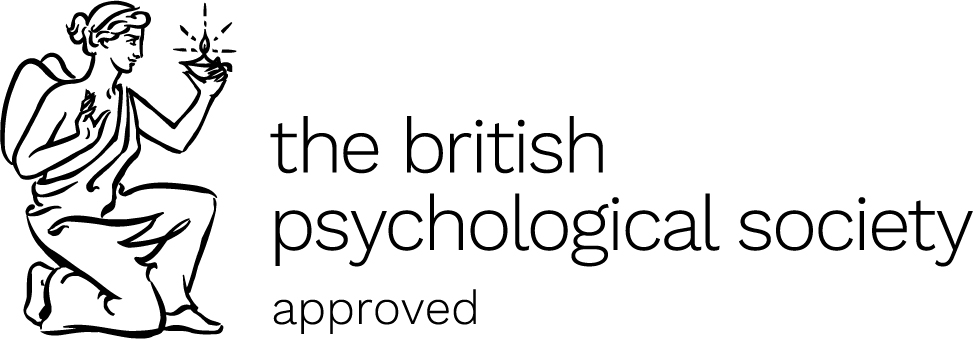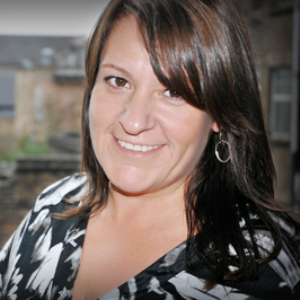
Third Wave Cognitive Behavioural Therapy (CBT) has become one of the most powerful therapeutic developments within the last 15 years. This modular Certificate Course is designed to provide both an up-to-date theoretical overview of a selection of Third Wave CBT approaches along with their practical application within a range of practice environments.
The Certificate focuses on separate modules relating to Mindfulness, Acceptance & Commitment Therapy (ACT), Compassion Focused Therapy (CFT) and Dialectical Behaviour Therapy (DBT). These different Third Wave approaches are be integrated via an additional online presentation exploring the meaning and contradictions within these approaches. Over and above this there is a particular focus on practical issues, problems and dilemmas within each Third Wave approach and how they can be successfully addressed.
Special Offer: Book Levels 1 & 2 of this Certificate together and save almost £200!
Third Wave Cognitive Behavioural Therapy (CBT) has become one of the most powerful therapeutic developments within the last 15 years. This modular Certificate Course is designed to provide both an up-to-date theoretical overview of a selection of Third Wave CBT approaches along with their practical application within a range of practice environments.
The Certificate focuses on separate modules relating to Mindfulness, Acceptance & Commitment Therapy (ACT), Compassion Focused Therapy (CFT) and Dialectical Behaviour Therapy (DBT). These different Third Wave approaches are be integrated via an additional online presentation exploring the meaning and contradictions within these approaches. Over and above this there is a particular focus on practical issues, problems and dilemmas within each Third Wave approach and how they can be successfully addressed.
Learning outcomes and objectives:
- Delegates will have an understanding of both the differences and linking concepts within 3rd Wave CBT
- Delegates will understand the conceptual basis of Mindfulness, ACT, CFT and DBT
- Delegates will learn practical strategies associated with the above therapeutic approaches and in a number of instances see demonstrations of such strategies and have opportunities to practice them
- Delegates will explore common therapeutic problems and dilemmas associated with 3rd Wave approaches how to resolve them
The structure of the certificate is as follows:
Mindfulness provides the key linking theme within the Certificate in 3rd Wave CBT. Representing both a state of being as well as a technique, this two day course provides both practice opportunities regarding different types of mindfulness training and provides a context within which different 3rd wave approaches incorporate or conceptualise mindfulness – from compassionate mindfulness, through Mindfulness Based Cognitive Therapy to developing Mindfulness as an alternative skill to emotional avoidance. The focus on attention and non-judgemental acceptance rather than avoidance, control and judgement ensures that mindfulness becomes a thread running throughout third wave psychotherapies.
Acceptance & Commitment Therapy 2 Days
Acceptance and Commitment Therapy (ACT) is a treatment package that combines several traditions such as early behaviourism, positive psychology and mindfulness. ACT is a trans-diagnostic model that has been successfully used to treat conditions such as depression, anxiety, PTSD, chronic pain, eating disorders and substance misuse just to name a few. ACT’s target is to promote psychological flexibility, that is, the ability to behave in a way that is consistent with one’s values even in the presence of aversive experiences (e.g. thoughts, feelings, physical pain). This is true as much for our clients as for the ACT practitioner. If you work in a context in which behaviour change is paramount, than this course will provide you with some very useful tools.
Compassion Focused Therapy 2 Days
Compassion Focused Therapy (CFT), is a research-based therapy founded on a combination of principles from Cognitive Behavioural Therapy, Evolutionary Psychology and Attachment Theory. It was developed to work specifically with clients who had high levels of shame and self-criticism and who had had early experiences of poor attachment, affiliation and affection. By developing care and affiliative focused motivation, attention, emotion behaviour and thinking CFT begins to address these problems. Key skills with CFT include the use of compassion focused imagery, the development of a compassionate self and the use of a sense of a compassionate self to engage with areas of personal difficulty.
Dialectical Behaviour Therapy 2 Days
Dialectical Behaviour Therapy (DBT) has developed as a combination of operant and skills training approaches, the incorporation of the concept of dialectics and the central role of mindfulness. Variations of DBT – in its pure form, in the form of its component parts or in adapted forms such as Radically Open DBT have developed as a gold standard approach to working with “treatment resistant” and “difficult to treat” clients. DBT has been demonstrated to be effective with Borderline Personality Disorder, suicidal intent, sexual abuse survivors, chemical dependency and eating disorders. Its recognition of motivational obstacles to therapeutic engagement and its creative solutions mark it out as one of the most practical approaches to poor motivation in the therapeutic arena today. Its four component parts – of Mindfulness, the development of Distress Tolerance, Emotional Regulation and Interpersonal Skills – provide a research based set of skills and protocols that delegates will be able to draw from whatever their working context.
The modules can be taken in any order. Delegates who attend one or more courses will be awarded with a Certificate of Attendance.
The course is followed by an online summary with the final online exam.
Special Offer: Book Levels 1 & 2 of this Certificate together and save almost £200!
Certificate Outline
- Dialectical Behaviour Therapy - 2 days, 14 Hours
- Compassion Focused Therapy - 2 days, 14 Hours
- Acceptance & Commitment Therapy - 2 days, 14 Hours
- Mindfulness - 2 days, 14 Hours
Accreditation Level 2:
Accreditation Level 3:
- Final Assignment plus delegate’s supervision record - optional, has to be booked separately
Total days: 8 - without Level 3
Total Hours: 60 - without Level 3
Certificate Payment Options
You have two payment options:
Option 1:
Spread the cost - pay per course as you go along:
Total RRP £1160 + vat (£1392)
Total if paid at EBD prices £1100 + vat (£1320)
Option 2:
Pay for Levels 1 & 2 together and save: £1000 + vat (£1200) instead of £1160 + vat (£1392)
Level 3 Accreditation has to be booked separately.
Accreditation Level 1 (Foundation) is the level of accreditation you obtain by attending any of the modules comprising the above Certificates via live training or live/recorded webcast.
This level of accreditation gives you a Certificate of Attendance, as well as access to the course materials and other resources, and enables you to state in your CV that you have SDS Accreditation in Certificate in Third Wave CBT Level 1 (Foundation).
Your accreditation currently lasts for 3 years, after which you cannot make the above statements and access course resources.
This level of accreditation is renewable by sitting an online refresher course or attending a live course/webcast. Successful completion of the online refresher, which includes the associated exam, gives you SDS Level 2 Accreditation.
SDS Accreditation, Level 2 (Assessed Academic Competence) is the level of accreditation you obtain by attending all modules of an SDS Modular course via live training or live/recorded webcast and passing an appropriate online exam after completing the whole course.
This level of accreditation gives you a BPS Approved Certificate in the appropriate subject, as well as access to the course materials and other resources. It also enables you to state in your CV that you have Level 2 (Assessed Academic Competence) Accreditation as a Practitioner in Certificate in Third Wave CBT.
Your accreditation currently lasts for 3 years, after which you cannot make the above statements and access course resources.
This level of accreditation is renewable by sitting an online refresher course or attending a live course/webcast listed as a suitable refresher course. Should you renew your accreditation within these 3 years, your access to these refresher courses is discounted by 50%.* Should you let your accreditation lapse, you pay the full price for the refresher training.
SDS Accreditation, Level 3 (Clinical Proficiency) is as Level 2, with the addition of:
- Submitting a project of an acceptable standard (3,000 words) at the end of your Certificate training. The purpose of the project is to illustrate that you can apply the academic knowledge gained from the course to a clinical situation.
- Submitting a written statement from your Clinical Supervisor confirming the regularity and duration of your supervision with them and your Competence as a clinician in the chosen topic. Your Clinical Supervisor should meet our qualification criteria.
This level of accreditation gives you a BPS Approved Certificate in the appropriate subject, as well as access to the course materials and other resources. It also enables you to state in your CV that you have Level 3 (Clinical Proficiency) Accreditation as a Practitioner in Certificate in Third Wave CBT.
You also will be given an option to be listed in the SDS Register of Qualified Practitioners in the appropriate field – our Network of Qualified Practitioners.
Your accreditation currently lasts for 3 years, after which you cannot make the above statements and access course resources.
This level of accreditation is renewable by sitting an online refresher course or attending a live course/webcast listed as a suitable refresher course and by submitting a new written statement from your Supervisor. Should you renew your accreditation within these 3 years, your access to these refresher courses and the written assignment is discounted by 50%.* Should you let your accreditation lapse, you pay the full price for the refresher training.



